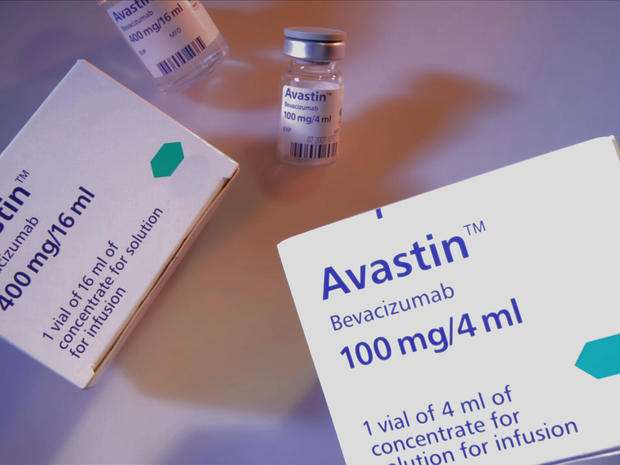Avastin unlikely to get ovarian cancer approval after disappointing studies
(CBS/AP) The cancer drug Avastin has come under fire in recent years as studies have showed it doesn't prolong life for patients with breast cancer and may cause nasty side effects. The controversy culminated in an FDA decision in November to revoke the drug's approval for treating breast cancer.
PICTURES: 2011 Year in Review: Health
Avastin is still approved to treat certain types of colon, lung, kidney, and brain cancer, and just last week Avastin won approval in Europe for treating ovarian cancer. But two new studies that looked closely at the drug's effectiveness for treating women with ovarian cancer did not show promising results. The studies found Avastin did not improve survival for most ovarian cancer patients and kept their disease from worsening for only a few months - while giving the patients more side effects.
One study, led by Dr. Robert Burger, a gynecologic oncologist at Fox Chase Cancer Center in Philadelphia, involved nearly 1,900 women with advanced ovarian cancer given one of three treatment combinations. The time until the disease got worse was a median of 10 months in those given just chemotherapy. Adding Avastin improved that time frame by just one to four months for the other two groups.
Survival was similar among the groups, and side effects, including high blood pressure, stomach and gut problems, were higher among those on Avastin.
In the other study, British researchers looked at more than 1,500 ovarian cancer patients who were given chemo with or without Avastin. The drug kept cancer at bay just one to two months longer than chemo alone did, with more cases of high blood pressure. There was a trend toward improved survival for those on Avastin, but the difference was too small to say the drug was responsible.
Results of the studies are in Dec. 29 issue of the New England Journal of Medicine.
Genentech helped pay for the studies and some of the researchers consult for the company. The company said it has no immediate plans to seek the approval in the U.S. for treating ovarian cancer. After talking with the FDA, "we do not believe the data will support approval" although no final decision has been made, said Charlotte Arnold, a spokeswoman for Genentech, part of the Swiss company Roche.
Dr. Gary Lyman, a Duke University researcher who was on the FDA advisory panel that recommended revoking Avastin's approval for breast cancer, wrote in an email that he agreed with the company's decision not to seek approval for ovarian cancer.
"The situation is very similar" to the results in breast cancer, and approval is unlikely unless a biological marker or test can show which patients might benefit, he wrote.
About 220,000 new cases of ovarian cancer are diagnosed each year around the world, and it causes 140,000 deaths. In the U.S., ovarian cancer strikes 22,000 women and results in 15,000 deaths each year.

